When you learn Korean, being able to use verbs is a key part of being able to increase your language competency.
You might have a strong vocabulary, but without verbs you’ll find it difficult to string a sentence that involves actions together!
Learning some essential Korean verbs will have a huge impact on your Korean ability and allow you to express yourself and improve your communication skills.
In this post, you'll learn 100 essential Korean verbs to kickstart your Korean!
Pro Tip
By the way, if you want to learn Korean fast and have fun while doing it, my top recommendation is Korean Uncovered which teaches you through my fun, unique and effective StoryLearning® method.
If you’re ready to get started, click here for a 7-day FREE trial.
100 Essential Korean Verbs
These essential Korean verbs are listed in alphabetical order based on the English translation so that it’s easier to find the specific Korean verb that you’re looking for.
If you want more detail on Korean verb conjugation, there's a separate blog post that has more information.
This post will list essential Korean verbs in their dictionary form and include example sentences so you can get an idea of how they’re used.
Let's check out these essential Korean verbs!
1. To Answer: 대답하다 Daedaphada
- He answered me slowly.
- geuneun naege cheoncheonhi daedaphaessda.
- 그는 나에게 천천히 대답했다.
- geuneun naege cheoncheonhi daedaphaessda.
2. To Ask: 묻다 Mutda
- Taeyeon asked about my parent’s health.
- taeyeonneun naege bumonimui geongange daehae mureosseoyo.
- 태연는 나에게 부모님의 건강에 대해 물었어요.
- taeyeonneun naege bumonimui geongange daehae mureosseoyo.
3. To Arrive: 도착하다 Dochakhada
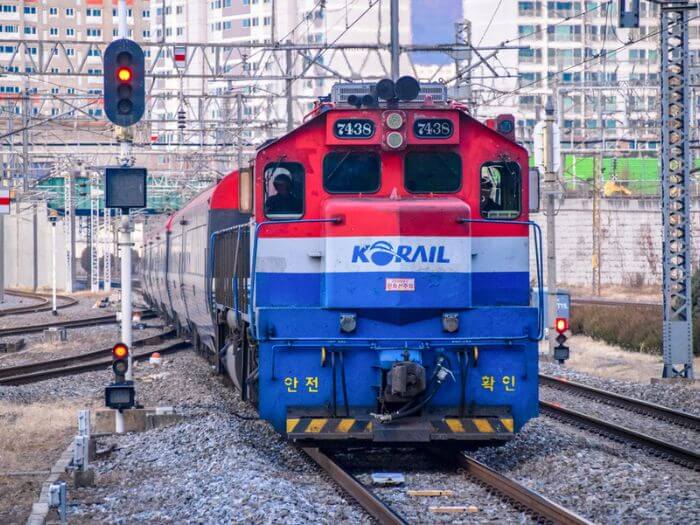
- The train arrived.
- yeolchaga dochakhaesseoyo
- 열차가 도착했어요
- yeolchaga dochakhaesseoyo
4. To Be Angry: 화나다 Hwanada
- I’m so angry right now.
- na jigeum neomu hwaga na.
- 나 지금 너무 화가 나.
- na jigeum neomu hwaga na.
5. To Be Drunk: 취하다Chwihada
- He was so drunk he couldn’t take his shoes off alone.
- geuneun neomu chwihaeseo honja sinbareul beoseul su eopseosseoyo.
- 그는 너무 취해서 혼자 신발을 벗을 수 없었어요.
- geuneun neomu chwihaeseo honja sinbareul beoseul su eopseosseoyo.
6. To Be Wrong: 틀리다 Teullida
- You’re wrong.
- nega teullyeosseo.
- 네가 틀렸어.
- nega teullyeosseo.
7. To Boil: 끓이다 Kkeulhida
- Can you please boil some water?
- mul jom kkeulhyeo jusigesseoyo?
- 물 좀 끓여 주시겠어요?
- mul jom kkeulhyeo jusigesseoyo?
8. To Buy: 사다 Sada
- Did you buy the plane ticket?
- bihaenggi pyo sasseo?
- 비행기 표 샀어?
- bihaenggi pyo sasseo?
9. To Confess: 고백하다 Gobaekhada
- I confessed my love to her.
- naneun geunyeoe sarangeul gobaekhaesseo.
- 나는 그녀에 사랑을 고백했어.
- naneun geunyeoe sarangeul gobaekhaesseo.
10. To Chat: 이야기하다 Iyagihada
- I don’t have time to chat right now.
- jeoneun jigeumeun iyagihal sigani eopseoyo.
- 저는 지금은 이야기할 시간이 없어요.
- jeoneun jigeumeun iyagihal sigani eopseoyo.
11. To Change (Transport): 갈아타다 Garatada
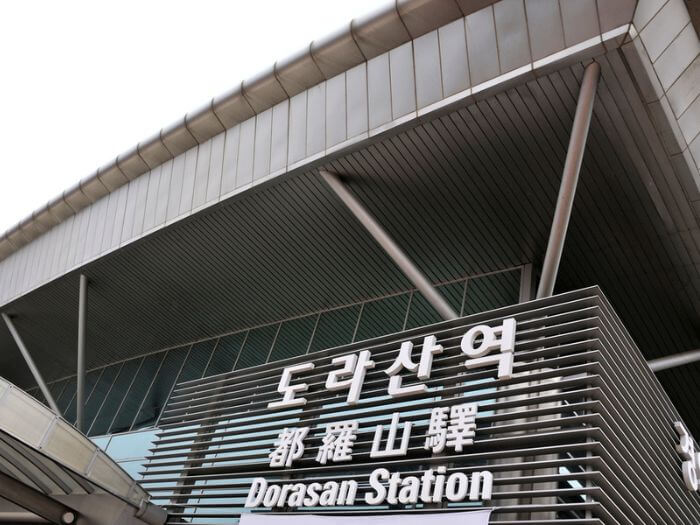
- Change train at the next station.
- daeum yeogeseo gichareul garatayo.
- 다음 역에서 기차를 갈아타요.
- daeum yeogeseo gichareul garatayo.
12. To Call: 전화하다 Jeonhwahada
- I think I’ll call her tonight.
- oneulbam geunyeoege jeonhwahal geos gata
- 오늘밤 그녀에게 전화할 것 같아.
- oneulbam geunyeoege jeonhwahal geos gata
13. To Close: 닫다 Datda
- She closed her laptop.
- geunyeoneun noteubugeul dadasseoyo.
- 그녀는 노트북을 닫았어요.
- geunyeoneun noteubugeul dadasseoyo.
14. To Congratulate: 축하하다 Chukhahada
- Congratulations on your graduation!
- joleob chughahae!
- 졸업 축하해!
- joleob chughahae!
15. To Continue: 계속하다 Gyesokhada
- He continued as if nothing had happened.
- geuneun amu il eopseossdaneun deut gyesokhaesseoyo.
- 그는 아무 일 없었다는 듯 계속했어요.
- geuneun amu il eopseossdaneun deut gyesokhaesseoyo.
16. To Come: 오다 Oda
- What time are you coming tomorrow?
- naeil myeot sie wa?
- 내일 몇 시에 와?
- naeil myeot sie wa?
17. To Cook: 요리하다 Yorihada
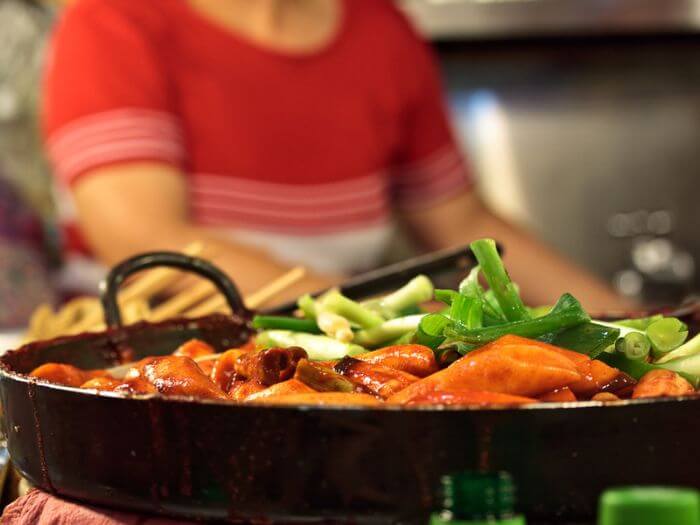
- Do you know how to cook?
- yorihal jul aseyo?
- 요리할 줄 아세요?
- yorihal jul aseyo?
18. To Clean: 청소하다 Cheongseohada
- I can’t go to the cinema tonight. I have to clean my room…
- naneun oneulbame yeonghwagwane galsu eopseo. nae bangeul cheongsohaeya hae…
- 나는 오늘밤에 영화관에 갈수 없어. 내 방을 청소해야 해…
- naneun oneulbame yeonghwagwane galsu eopseo. nae bangeul cheongsohaeya hae…
19. To Cry: 울다 Ulda
- He cried alone while watching the film.
- geuneun honjaro yeonghwareul bogo ureosseoyo.
- 그는 혼자로 영화를 보고 울었어요.
- geuneun honjaro yeonghwareul bogo ureosseoyo.
20. To Dance: 춤추다 Chumchuda
- I went home at 1am but she stayed out dancing all night long!
- naneun saebyeok 1sie jibe gassneunde geunyeoneun bamsaedorok chumeul chugo isseosseo!
- 나는 새벽 1시에 집에 갔는데 그녀는 밤새도록 춤을 추고 있었어!
- naneun saebyeok 1sie jibe gassneunde geunyeoneun bamsaedorok chumeul chugo isseosseo!
21. To Die: 죽다 Jookda
- My dog died.
- nae gaeneun jugeosseo.
- 내 개는 죽었어.
- nae gaeneun jugeosseo.
22. To Draw: 그리다 Geurida
- He doesn’t know how to draw.
- geuneun geurineun beobeul mollayo.
- 그는 그리는 법을 몰라요.
- geuneun geurineun beobeul mollayo.
23. To Dream: 꿈꾸다 Kumkuda
- Last night I dreamt I was a fish.
- eojesbam naneun naega mulgogiin kkumeul kkueosseo.
- 어젯밤 나는 내가 물고기인 꿈을 꾸었어.
- eojesbam naneun naega mulgogiin kkumeul kkueosseo.
24. To Drink: 마시다 Mashida

- I drank too much soju last night…
- eojesbame sojureul neomu manhi masyeosseo…
- 어젯밤에 소주를 너무 많이 마셨어…
- eojesbame sojureul neomu manhi masyeosseo…
25. To Drop: 떨어지다 Ddeoreojida
- She dropped her cookie on the floor.
- geunyeoneun kukireul badage tteoreotteuryeossda.
- 그녀는 쿠키를 바닥에 떨어뜨렸다.
- geunyeoneun kukireul badage tteoreotteuryeossda.
26. To Dislike: 싫어하다 Sileohada
- I don’t like this song.
- i noraereul silheohaeyo.
- 이 노래를 싫어해요.
- i noraereul silheohaeyo.
27. To Drive: 운전하다 Unjeonhada
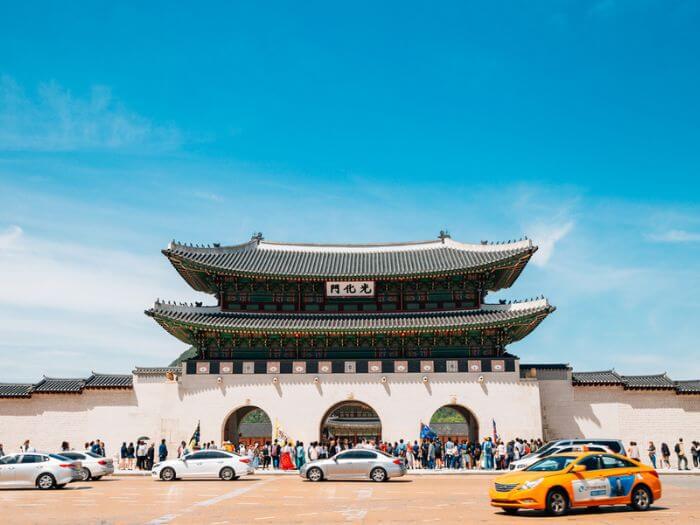
- We drove from Seoul to Busan in the car.
- ulineun chaleul tago seoul-eseo busankkaji unjeonhaesseoyo.
- 우리는 차를 타고 서울에서 부산까지 운전했어요.
- ulineun chaleul tago seoul-eseo busankkaji unjeonhaesseoyo.
28. To Do: 하다 Hada
- Have you done it yet?
- ajig an haesseo?
- 아직 안 했어?
- ajig an haesseo?
29. To Eat: 먹다 Meokda
- My older sister loves eating kimchi pancake.
- eonnineun gimchicheoneul meokneun geoseul johahaeyo.
- 언니는 김치천을 먹는 것을 좋아해요.
- eonnineun gimchicheoneul meokneun geoseul johahaeyo.
30. To Enjoy: 즐기다 Jeulgida
- I enjoyed spending time with you last night.
- eojesbam dangsingwa hamkke siganeul bonaeseo jeulgeowosseoyo.
- 어젯밤 당신과 함께 시간을 보내서 즐거웠어요.
- eojesbam dangsingwa hamkke siganeul bonaeseo jeulgeowosseoyo.
31. To Exercise: 운동하다 Undonghada
- She exercises every day.
- geunyeoneun maeil undongeul haeyo.
- 그녀는 매일 운동을 해요.
- geunyeoneun maeil undongeul haeyo.
32. To Exit: 나가다 Nagada
- You can exit from the left entrance.
- oenjjok ipguro nagal su issseupnida.
- 왼쪽 입구로 나갈 수 있습니다.
- oenjjok ipguro nagal su issseupnida.
33. To Expect: 기대하다 Gidaehada
- I’m expecting a good result.
- joheun gyeolgwareul gidaehagoisseoyo.
- 좋은 결과를 기대하고있어요.
- joheun gyeolgwareul gidaehagoisseoyo.
34. To Experience: 경험하다 Gyeongheomhada
- I just had a scary experience.
- museoun ireul gyeongheomhaessda.
- 무서운 일을 경험했다.
- museoun ireul gyeongheomhaessda.
35. To Explain: 설명하다 Seolmyeonghada
- Can you please explain this to me?
- naege igeoseul seolmyeonghae jusigessseubnikka?
- 저에게 이것을 설명해 주시겠습니까?
- naege igeoseul seolmyeonghae jusigessseubnikka?
36. To Finish: 끝나다 Keutnada

- I finally finished my Korean homework!
- deudieo hangugeo sukjereul kkeutnaesseoyo!
- 드디어 한국어 숙제를 끝냈어요!
- deudieo hangugeo sukjereul kkeutnaesseoyo!
37. To Fail: 실패하다 Silpaehada
- My marriage failed.
- gyeolhone silpaehada.
- 제 결혼에 실패했어요.
- gyeolhone silpaehada.
38. To Fry: 볶다 Bokda
- She’s frying the rice now.
- geunyeoneun jigeum babeul bokkgo isseoyo.
- 그녀는 지금 밥을 볶고 있어요.
- geunyeoneun jigeum babeul bokkgo isseoyo.
39. To Forget: 잊어버리다 Ijeoborida
- I forgot to call you last night.
- eojesbame neo hantae jeonhwahaneun geo ijeobeoryeosseo.
- 어젯밤에 너 한태 전화하는 거 잊어버렸어.
- eojesbame neo hantae jeonhwahaneun geo ijeobeoryeosseo.
40. To Give Up: 포기하다 Pogihada
- You can’t give up!
- pogihalsueopseo!
- 포기할수없어!
- pogihalsueopseo!
41. To Go: 가다 Gada
- I went to the party alone and met a really handsome guy!
- na honja patie gassdaga jeongmal jalsaenggin namjaleul mannasseo!
- 나 혼자 파티에 갔다가 정말 잘생긴 남자를 만났어!
- na honja patie gassdaga jeongmal jalsaenggin namjaleul mannasseo!
42.To Give: 주다 Juda
- Give me a bottle of soju please.
- soju han byeongeul jusaeyo.
- 소주 한 병을 주세요.
- soju han byeongeul jusaeyo.
43. To Go Down: 내려가다 Naeryeogada
- Please go down to the first floor.
- il chungeuro naeryeogada.
- 일 충으로 내려가다.
- il chungeuro naeryeogada.

44. To Help: 도와주다 Dowajuda
- I can help you tomorrow.
- nan naeil dowajul su isseo.
- 난 내일 도와줄 수 있어.
- nan naeil dowajul su isseo.
45. To Hear: 듣다 Deutda
- Are you listening to me!?
- nae mal deutgo isseo!?
- 내 말 듣고 있어!?
- nae mal deutgo isseo!?
46. To Hug: 안다 Anda
- Please hug me.
- nareul anajuseyo.
- 나를 안아주세요.
- nareul anajuseyo.
47. To Ignore: 무시하다 Musihada
- My boyfriend is so childish, he’s ignoring me.
- namjachinguga neomu yuchihae. geuneun nareul musihago isseo.
- 남자친구가 너무 유치해. 그는 나를 무시하고 있어.
- namjachinguga neomu yuchihae. geuneun nareul musihago isseo.
48. To Imagine: 상상하다 Sangsanghada
- She was more beautiful than I imagined.
- geunyeoneun naega sangsanghan geosboda yeppeosseo.
- 그녀는 내가 상상한 것보다 예뻤어.
- geunyeoneun naega sangsanghan geosboda yeppeosseo.
49. To Introduce: 소개하다 Sogaehada

- I’m going to introduce you to my really handsome friend!
- nae jalsaenggin chingureul sogaehalge!
- 내 잘생긴 친구를 소개할게!
- nae jalsaenggin chingureul sogaehalge!
50. To Know: 알다 Alda
- Do you know where she lives?
- geunyeoga eodi saneunji arayo?
- 그녀가 어디 사는지 알아요?
- geunyeoga eodi saneunji arayo?
51. To Lie: 거짓말하다 Geojitmal
- He lies all the time!
- geuneun hangsang geojismareul hae!
- 그는 항상 거짓말을 해!
- geuneun hangsang geojismareul hae!
52. To Like: 좋아하다 Johahada
- Do you like Korean food?
- hangugeumsigeul johhahaeyo?
- 한국음식을 좋하해요?
- hangugeumsigeul johhahaeyo?
53. To Love: 사랑하다 Saranghada
- I really love my older sister!
- naneun eonnireul neomu saranghae!
- 나는 언니를 너무 사랑해!
- naneun eonnireul neomu saranghae!
54. To Live: 살다 Salda

- I’ve been living in Korea for five years already.
- jeoneun hangugeseo beolsseo 5 nyeon jjae salgoissseupnida.
- 저는 한국에서 벌써 5년 째 살고 있습니다.
- jeoneun hangugeseo beolsseo 5 nyeon jjae salgoissseupnida.
55. To Laugh: 웃다 Utda
- I’m dying of laughter!
- na usgyeo jukgesseo!
- 나 웃겨 죽겠어!
- na usgyeo jukgesseo!
56. To Learn: 배우다 Baeuda
- Are you learning Korean too?
- neodo hangugeoreul baewo?
- 너도 한국어를 배워?
- neodo hangugeoreul baewo?
57. To Make: 만들다 Mandeulda
- She is making kimchi fried rice in the kitchen.
- geunyeoneun bueokeseo gimchibokkeumbabeul mandeulgo isseoyo.
- 그녀는 부엌에서 김치볶음밥을 만들고 있어요.
- geunyeoneun bueokeseo gimchibokkeumbabeul mandeulgo isseoyo.
58. To Make An Effort: 노력하다 Noryeokhada
- I’m going to make an effort to pass my Korean exam.
- naneun hangugeo siheome hapgyeokhagi wihae noryeokhal geosida.
- 나는 한국어 시험에 합격하기 위해 노력할 것이다.
- naneun hangugeo siheome hapgyeokhagi wihae noryeokhal geosida.
59. To Marry: 결혼하다 Gyeolhonhada
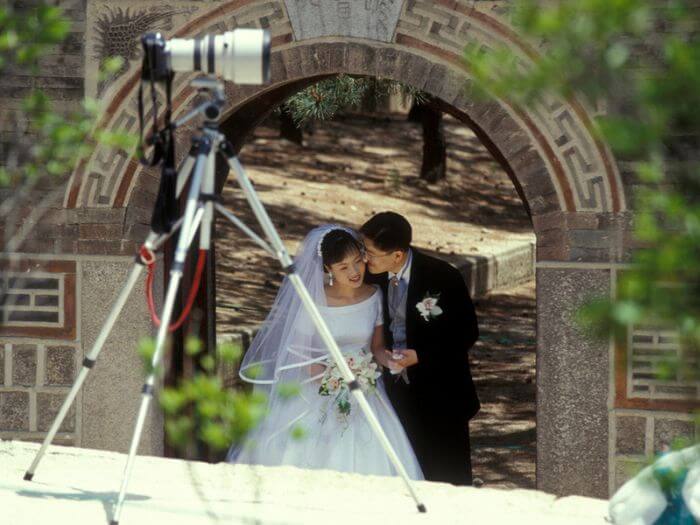
- I got married last year.
- naneun jaknyeone gyeolhonhaesseoyo.
- 나는 작년에 결혼했어요.
- naneun jaknyeone gyeolhonhaesseoyo.
60. To Meet: 만나다 Mannada
- Let’s meet in the park tonight.
- oneul bam gongwoneseo mannaja
- 오늘 밤 공원에서 만나자.
- oneul bam gongwoneseo mannaja
61. To Move: 움직이다 Umjigida
- The little boy kept moving about.
- eorin namjaaiga gyesok umjigyeosseoyo.
- 어린 남자아이가 계속 움직였어요.
- eorin namjaaiga gyesok umjigyeosseoyo.
62. To Not Know: 모르다 Moreuda
- I don’t know that person’s name.
- naneun geu saramui ireumeul mollayo.
- 나는 그 사람의 이름을 몰라요.
- naneun geu saramui ireumeul mollayo.
63. To Need: 필요하다 Pilyohada
- I need a new pen.
- sae peni piryohae.
- 새 펜이 필요해.
- sae peni piryohae.
64. To Not Be Able To Do: 못하다 Mothada
- I can’t speak Korean well.
- naneun hangugeoreul jal moshaeyo.
- 나는 한국어를 잘 못해요.
- naneun hangugeoreul jal moshaeyo.
65. To Not Have: 없다 Eopsda
- Our parents don’t have a car.
- uri bumonimeun chaga eopseoyo.
- 우리 부모님은 차가 없어요.
- uri bumonimeun chaga eopseoyo.
66. To Open: 열다 Yeolda
- Open the door please!
- muneul yeoleojuseyo!
- 문을 열어주세요!
- muneul yeoleojuseyo!
67. To Order: 주문하다 Jumunhada

- What are you going to order?
- mueoseul jumunhal geongayo?
- 무엇을 주문할 건가요?
- mueoseul jumunhal geongayo?
68. To Promise: 약속하다 Yaksokhada
- I promise that I didn’t do it!
- naneun geugeoseul haji anhassdago yaksokhae!
- 나는 그것을 하지 않았다고 약속해!
- naneun geugeoseul haji anhassdago yaksokhae!
69. To Practice: 연습하다 Yeonseuphada
- Don’t forget to practice Korean verbs!
- hangugeo dongsareul yeonseuphaneun geoseul ijji maseyo!
- 한국어 동사를 연습하는 것을 잊지 마세요!
- hangugeo dongsareul yeonseuphaneun geoseul ijji maseyo!
70. To Prepare: 준비하다 Junbihada
- Have you prepared for your trip to Japan next week?
- daeum ju ilbon yeohaeng junbineun hasyeossnayo?
- 다음 주 일본 여행 준비는 하셨나요?
- daeum ju ilbon yeohaeng junbineun hasyeossnayo?
71. To Pay: 내다 Naeda
- I’ll pay for lunch today.
- oneul jeomsimeun naega naelge.
- 오늘 점심은 내가 낼게.
- oneul jeomsimeun naega naelge.
72. To Play: 놀다 Nolda
- Let’s go play outside.
- nagaseo bakkeseo nolja.
- 나가서 밖에서 놀자.
- nagaseo bakkeseo nolja.
73. To Regret: 후회하다 Huhwihada
- I regret breaking up with my girlfriend.
- naneun yeojachinguwa heeojin geoseul huhoehae.
- 나는 여자친구와 헤어진 것을 후회해.
74. To Ride: 타다 Tada
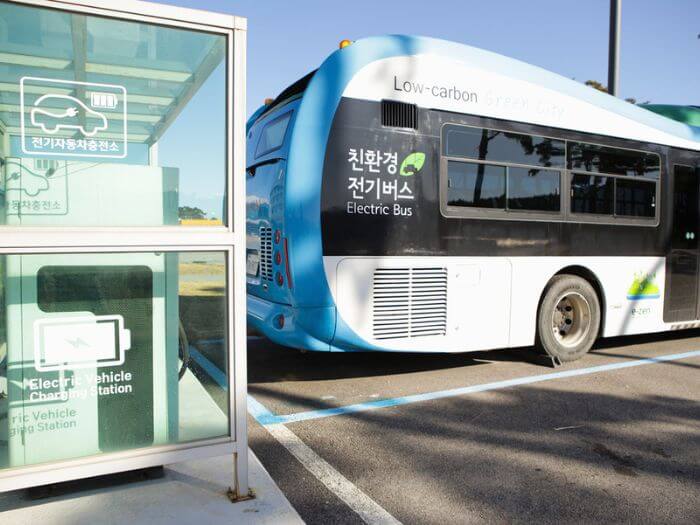
- I took the bus and got off at the wrong stop.
- naneun beoseureul tago jalmosdoen jeongryujangeseo naeryeosseo.
- 나는 버스를 타고 잘못된 정류장에서 내렸어.
- naneun beoseureul tago jalmosdoen jeongryujangeseo naeryeosseo.
75. To Run: 달리다 Dallida
- My younger sister can run really fast.
- nae dongsaengeun jeongmal ppalli dallil su isseo.
- 내 동생은 정말 빨리 달릴 수 있어.
- nae dongsaengeun jeongmal ppalli dallil su isseo.
76. To Read: 읽다 Ilkda
- Wow! You can already read books in Korean!
- uwa! neoneun imi hangugeoro chaegeul ilkeul su isseo!
- 우와! 너는 이미 한국어로 책을 읽을 수 있어!
- uwa! neoneun imi hangugeoro chaegeul ilkeul su isseo!
77. To Remember: 기억하다 Gieokhada
- Do you remember who I am?
- naega nugunji gieokhae?
- 내가 누군지 기억해?
- naega nugunji gieokhae?
78. To Study: 공부하다 Kongbuhada
- How long have you been studying Japanese for?
- ilboneo gongbuhanji eolmana dwaesseo?
- 일본어 공부한지 얼마나 됐어?
- ilboneo gongbuhanji eolmana dwaesseo?
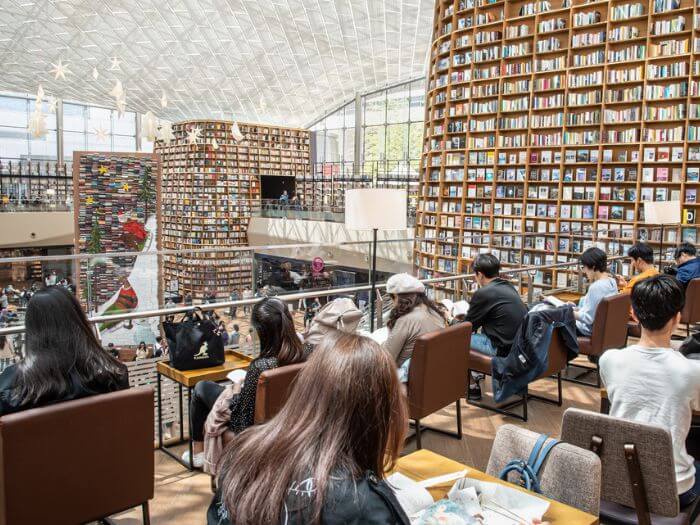
79. To Sleep: 자다 Jada
- Sleep well!
- Jal ja!
- 잘 자!
- Jal ja!
80. To Sing: 노래하다 noraehada
- She likes to sing in the shower.
- geunyeoneun syawohamyeonseo noraehaneun geol johahae.
- 그녀는 샤워하면서 노래하는 걸 좋아해.
- geunyeoneun syawohamyeonseo noraehaneun geol johahae.
81. To Speak: 말하다 Malhada
- My Korean speaking ability is terrible!
- nae hangugeo malhagi neungryeogi jeongmal nappa!
- 내 한국어 말하기 능력이 정말 나빠!
- nae hangugeo malhagi neungryeogi jeongmal nappa!
82. To Sightsee: 구경하다 Gugyeonghada
- I’m going to sightsee in Seoul.
- naneun seoureul gwangwanghal geosida.
- 나는 서울을 관광할 것이다.
- naneun seoureul gwangwanghal geosida.
83. To Sit: 앉다 Anjda
- Sit down next to me.
- nae yeope anja.
- 내 옆에 앉아.
- nae yeope anja.
84. To Shout: 소리치다 Sorichida
- Please stop shouting at me!
- sorichiji maseyo!
- 소리치지 마세요!
- sorichiji maseyo!
85. To Start: 시작하다 Sijakhada
- The meeting will start at 7am tomorrow morning.
- hoeuineun naeil ojeon 7 sie sijakdoepnida.
- 회의는 내일 오전 7시에 시작됩니다.
- hoeuineun naeil ojeon 7 sie sijakdoepnida.
86. To Steam: 찌다 Jjida
- I want to eat steamed dumplings today.
- oneureun jjinmanduga meokgosipda.
- 오늘은 찐만두가 먹고싶다.
- oneureun jjinmanduga meokgosipda.
87. To Succeed: 성공하다 Seonggonghada
- She succeeds at everything she does.
- geunyeoneun modeun ire seonggonghaeyo.
- 그녀는 모든 일에 성공해요.
- geunyeoneun modeun ire seonggonghaeyo.
88. To Sell: 팔다 Palda
- My classmate sells ice-cream on the weekend.
- uri ban chinguneun jumare aiseukeurimeul parayo.
- 우리 반 친구는 주말에 아이스크림을 팔아요.
- uri ban chinguneun jumare aiseukeurimeul parayo.
89. To Teach: 가르치다 Gareuchida
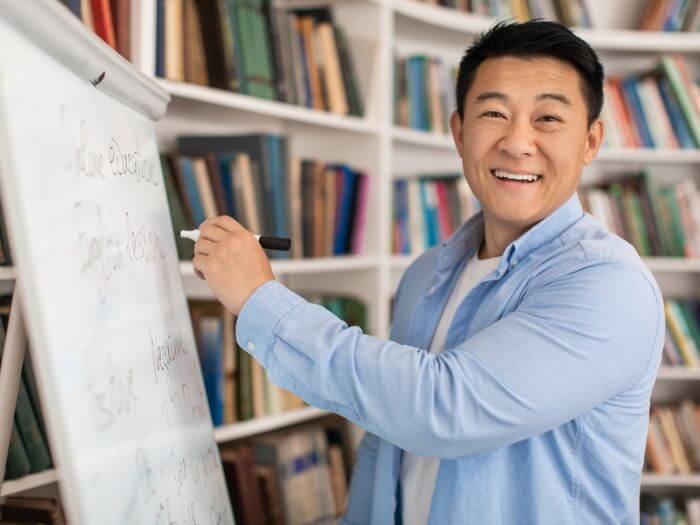
- She has been teaching Korean for 30 years.
- geunyeoneun 30 nyeon dongan hangugeoreul gareuchyeossseupnida.
- 그녀는 30년 동안 한국어를 가르쳤습니다.
- geunyeoneun 30 nyeon dongan hangugeoreul gareuchyeossseupnida.
90. To Take: 가져가다 Gajyeogada
- Hey! Where are you going with my beer?
- ya! nae maekjureul eodiro gajyeoganeungeoya?
- 야! 내 맥주를 어디로 가져가는거야?
- ya! nae maekjureul eodiro gajyeoganeungeoya?
91. To Thank: 감사하다 Gamsahada
- Thank you!
- gamsahapnida!
- 감사합니다!
- gamsahapnida!
92. To Touch: 만지다 Manjida
- Be careful touching that dog.
- geu gaereul manjineun josimhae.
- 그 개를 만지는 조심해.
- geu gaereul manjineun josimhae.
93. To Trust: 믿다 Mitda
- I don’t trust him.
- naneun geureul mitji anhayo.
- 나는 그를 믿지 않아요.
- naneun geureul mitji anhayo.
94. To Use: 사용하다 Sayonghada
- I used my girlfriend’s toothbrush by accident.
- silsuro yeojachinguui chissoreul sayonghaesseoyo.
- 실수로 여자친구의 칫솔을 사용했어요.
- silsuro yeojachinguui chissoreul sayonghaesseoyo.
95. To Understand: 이해하다 Ihaehada
- I can’t understand what Taeyeon is saying.
- taeyeoniga museun mareul haneunji ihaega an doenda.
- 태연이가 무슨 말을 하는지 이해가 안 된다.
- taeyeoniga museun mareul haneunji ihaega an doenda.
96. To Walk: 걷다 Geodda
- She walks everywhere.
- geunyeoneun eodideunji georeoyo.
- 그녀는 어디든지 걸어요.
- geunyeoneun eodideunji georeoyo.
97. To Watch: 보다 Boda

- She’s watching TV in the living room.
- geunyeoneun jibeseo TV reul bogo isseoyo.
- 그녀는 집에서 TV를 보고 있어요.
- geunyeoneun jibeseo TV reul bogo isseoyo.
98. To Write: 쓰다 Sseuda
- I think you should write her a letter.
- geunyeoege pyeonjireul sseoya hal geot gata.
- 그녀에게 편지를 써야 할 것 같아.
- geunyeoege pyeonjireul sseoya hal geot gata.
99. To Worry: 걱정하다 Geokjeonghada
- I'm worried that I didn't do well on the Korean exam.
- Hangugeo siheomeul jal mon bwasseulkka bwa geokjeongdwaeyo
- 한국어 시험을 잘 못 봤을까 봐 걱정돼요.
- 한국어 시험을 잘 못 봤을까 봐 걱정돼요.
- Hangugeo siheomeul jal mon bwasseulkka bwa geokjeongdwaeyo
100. To Wait: 기다리다 Gidarida
- I’ll wait outside.
- bakkeseo gidarilge.
- 밖에서 기다릴게.
- bakkeseo gidarilge.
Essential Korean Verbs: Next Steps
So there you have it, 100 essential Korean verbs to kickstart your Korean!
While having a list like this is a great starting point, there's more to learning Korean verbs than memorising a list.
Instead, follow the rules of StoryLearning and read books in Korean or short stories in Korean.
As you immerse yourself in Korean by reading (or by listening to Korean podcasts or watching Korean movies on Netflix) you'll see these essential Korean verbs over and over again.
You'll soon be using them when you speak or write Korean too!

Olly Richards
Creator of the StoryLearning® Method
Olly Richards is a renowned polyglot and language learning expert with over 15 years of experience teaching millions through his innovative StoryLearning® method. He is the creator of StoryLearning, one of the world's largest language learning blogs with 500,000+ monthly readers.
Olly has authored 30+ language learning books and courses, including the bestselling "Short Stories" series published by Teach Yourself.
When not developing new teaching methods, Richards practices what he preaches—he speaks 8 languages fluently and continues learning new ones through his own methodology.










































